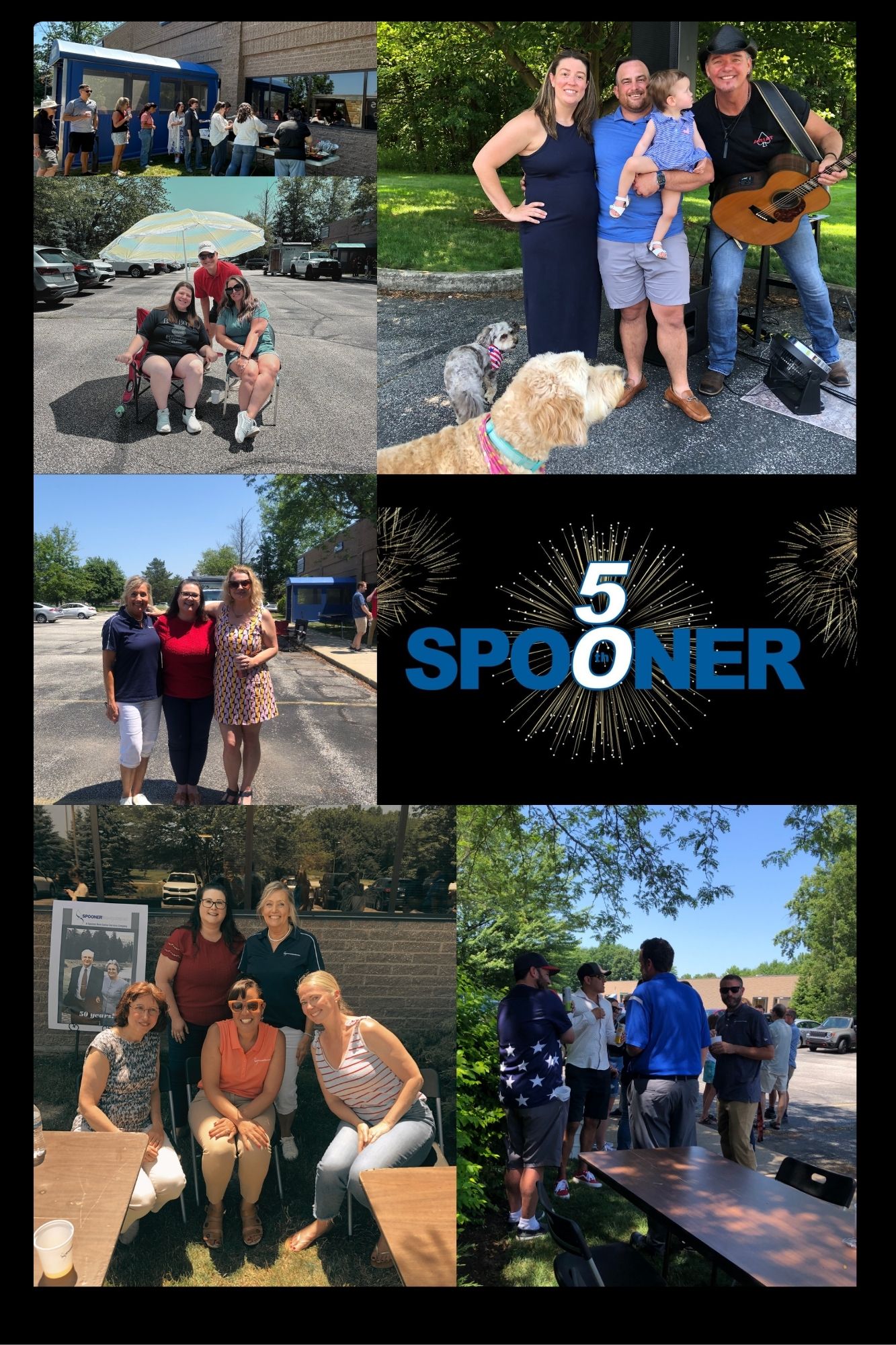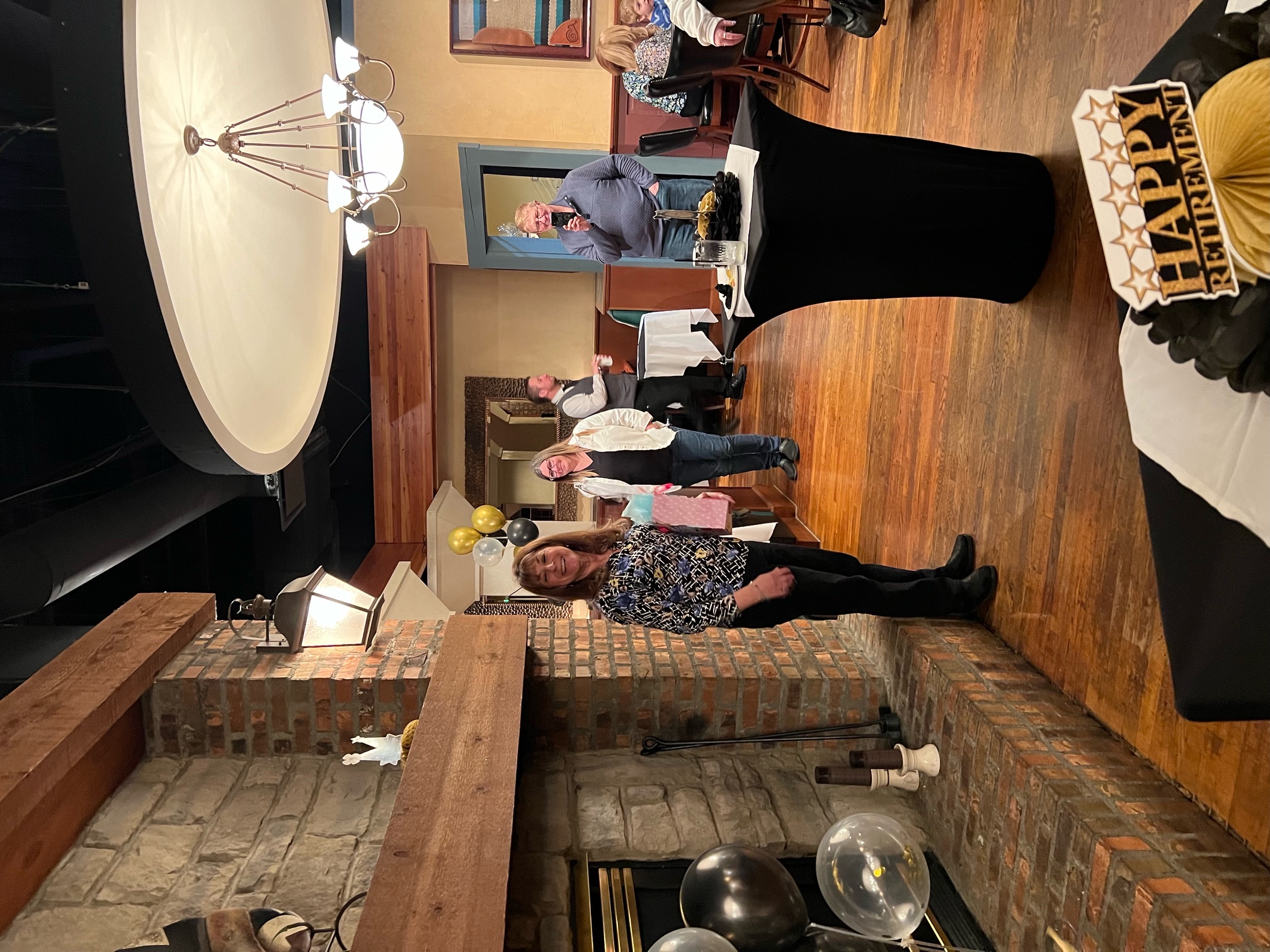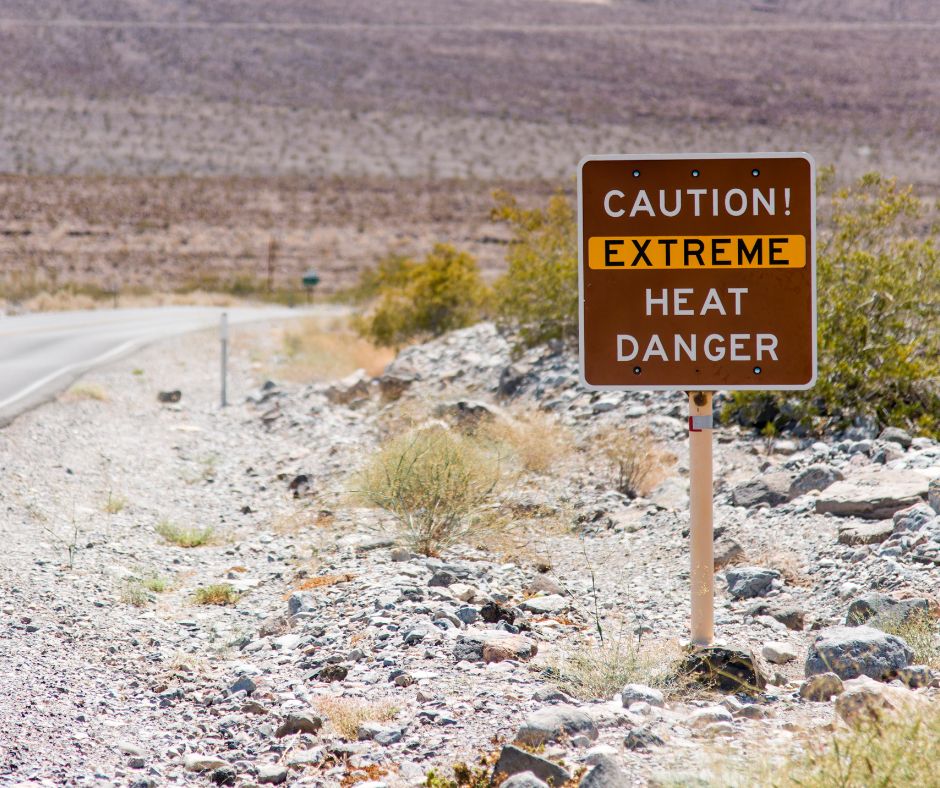Posted By Brandy King
February 02, 2026
Category: General
ATTENTION Group and Group Retro Clients: Spooner Safety Seminars are back on the road! Our team is eager to get back on the road to provide Ohio employers education that can help keep their workplaces safe. The registration process looks a bit different this year and will take you to an external site, but our processing partner SlimCD is the safest and most convenient way for us to collect your payment. See below to find out when our team will be in your area and get signed up before the April 16 registration deadline.
Dayton/Cincinnati Area: April 21, 10a -12p Hilton Garden Inn, 12000 Innovation Dr, Miamisburg, OH 45342
Columbus Area: April 22, 10a-12p Embassy Suites, 5100 Upper Metro Place, Dublin, OH 43017
Youngstown Area: April 23, 10a – 12p A La Cart Catering, 429 Lisbon Street, Canfield, OH 44406
Cleveland Area: April 24, 10a – 12p Holiday Inn, 6001 Rockside Road, Independence, OH 44131
To register online, click here.
NOTE: Registration deadline is Thursday April 16, 2026.
All employers are welcome to attend these informative workplace safety seminars. One training session will satisfy the 2-hour safety training requirement for companies participating in Group Rating or Group Retro with a claim in the green period* for the 2025-2026 policy year. The cost to attend is $95.00 per person, to be paid during registration process.
*The green period for this year's training deadline is 7/1/23 through
Posted By Brandy King
July 21, 2025
Category: General
Earlier this month before we left for a long holiday weekend, we gathered all of our employees at Spooner’s Westlake headquarters to celebrate an amazing 50 years in business! We celebrated with sunshine, great food, a few cold beverages, and live music.
If you’ve been a client for a while, you may have heard the story of how our founder, Tom Spooner, started our family of companies in 1975. For those that haven’t, we like it so much that it takes up most of our “About Us” section, so you can read it there. The abridged version is: we started with grit and determination, and found ways to disrupt the industry in the interest of Ohio employers. Tom Spooner felt then, as our leadership team feels today, that Ohio business big and small need a true partner when it comes to risk management. We’re beyond proud to be that partner to thousands of businesses.
While we’ve been lucky enough to experience tremendous growth over the last five decades, we’ve been cautious about keeping that growth organic and maintaining the values and integrity that got us here. We love what we do, and that passion is a big part of what’s kept our client retention rate hovering over 98% for countless consecutive years.
We’d like to thank our incredible staff and leadership, and our trusting clients for helping us achieve this milestone. Here’s to the next
Posted By Brandy King
July 21, 2025
Category: General
The Occupational Safety and Health Administration (OSHA) recently proposed some sweeping changes to longstanding regulations.
OSHA published a whopping 25 proposed rules and one final rule on July 1, 2025. The proposed rules encompass several different topics related to worker health and safety. Some of the proposals will impact very narrow groups of employers and industries, and a few may have a substantial impact on a large number of U.S. employers. OSHA’s commentary on these changes indicates a goal of removing unnecessary regulatory burdens on employers, while also streamlining OSHA’s regulatory process.
The only final rule put into place (and effective immediately) eliminates the need for OSHA’s administrator to seek opinions of the Advisory Committee on Construction Safety and Health before publishing, changing, or revoking standards that apply to construction work.
Below are a few high notes from some of the more broadly applicable proposed regulations. Remember that OSHA’s rulemaking process requires them to publish these proposed changes and allow time for public commentary and feedback. The links above and below lead to the Federal Register site, where the full details of the suggested changes can be accessed along with the feedback submission form.
Highlights of Notable Proposed Rules
Application of the General Duty Clause: This could be the change that causes the most stir and elicits the most feedback. While the General
Posted By Brandy King
July 21, 2025
Category: General
Ohio BWC has opened the application period the Safety Intervention Grant (SIG) Program, which matches eligible state-fund employers $3 to $1 on investments to create a safer workplace. Most employers who have had an Ohio BWC policy for at least one year, are paying above minimum premium ($120+), current on installments and true ups with no lapses this year should be able to take advantage. Self-insuring employers, employers in a self-insured PEO, state agencies and state universities are not eligible. Every three years, eligible employers can apply for up to $40,000 in matching funds to purchase “equipment to substantially reduce or eliminate injuries and illnesses associated with a particular task or operation.”
The first thing to note is that if your organization wants to benefit from the Safety Intervention Grants, you must complete this process before purchasing equipment. Be prepared with info on workers’ comp claims or incidents associated with the particular area or task, number of employees performing the task, and explore vendors to get price quotes on equipment. As always, there are items and services that grant funds can’t be used for - like standard PPE, training, equipment needed to meet minimum OSHA requirements, etc. A detailed moratorium can be found here.
Of course, there are usually a few strings attached when money is given away. There are reporting requirements once the grant is approved. To avoid getting too
Posted By Brandy King
July 21, 2025
Category: General
Some Spooner clients may have received a DocuSign email on or around July 17 with their Group Rating or Group Retro enrollment documents for next year (BWC’s 2026-2027 policy year). The email sender should show as Nathan Kenney (our President), and it is a legitimate email from Spooner Inc. The email itself, the links within it leading to DocuSign, and the signature process are all safe and secure. You won’t be asked for a payment method – this is simply to enroll your company in a 2026 savings program.
If you received the email and are having trouble getting DocuSign to work for you, please reach out to your client services manager or email clientservices@spoonerinc.net. If you haven’t received an email – no need to worry. Not all Spooner clients will receive their program enrollment materials this way. Your client services manager will be in touch with your 2026 options if you did not receive enrollment materials via DocuSign. If you have any questions, please feel free to use the email address above or call us at
Posted By Brandy King
June 05, 2025
Category: General
Along with the new Ohio BWC policy year beginning on July 1, 2025 – one of their most beneficial programs now has an increased ROI for employers. Participating in a local safety council is beneficial not just for the savings – but also the education, networking, and locating resources to aid your internal safety programs. Ohio businesses have until July 31, 2025 to sign on for the 2025-2026 program. Your company can earn a 3% rebate (not to exceed $5000) on ’25-26 policy year premiums by attending 10 in-person safety council meetings. At least eight (8) of these must be attended through the safety council you’re enrolled with, and up to two (2) credits can be earned through attending BWC-sponsored in-person or virtual events, or in-person training from external sources like your TPA or trade organizations and Chambers of Commerce.
Remember – to get the 3% rebate, your policy premiums must be current and your most recent True-Up should have been completed on time. This rebate program can be combined with Group Rating, Group Retro and virtually any other BWC program your company participates in. For more information on the Safety Council Program, reach out to us at 440-249-5260 or check out this
Posted By Brandy King
June 05, 2025
Category: General
We’d like to sincerely thank every Ohio employer that chose Spooner Medical Administrators, Inc. (SMAI) as their MCO during MCO Open Enrollment last month, as well as those loyal clients who chose to remain with our MCO. SMAI continues to experience sustainable, organic growth, thanks to the partnerships we have with Chambers of Commerce, trade organizations, Associations, and simply by word of mouth.
SMAI has grown in both policies assigned and claims managed, and was also one of only four MCOs to see a net growth during Open Enrollment. The team at SMAI is excited to begin building partnerships with the hundreds of new employers that moved to Spooner Medical Administrators this year.
Thanks for putting your faith in us, Ohio businesses! We can’t wait to meet even more new customers when the next Open Enrollment rolls around in
Posted By Brandy King
June 05, 2025
Category: General
If your company participated in Group Rating or Group Retro during the 2024 policy year (July 1, 2024-June 30, 2025) and had a claim during the green year(s), you’re required to complete two hours of safety training by June 30, 2025. Please be sure to complete submit the training certificates to your team at Spooner (or your TPA, if you’re not a Spooner client). If you’re unsure if you need to complete this training, reach out to your client services manager. The training doesn’t have to be completed in person – so there’s still time to meet the requirement by participating in one of BWC’s online courses. Here are some details on fulfilling the two-hour training requirement, per the Ohio BWC website.
Two-hour Training Options
A variety of training sources are available for you to fulfill this requirement. They include the following offered through BWC’s Division of Safety & Hygiene:
Education and Training Services Center courses
Ohio Safety Congress & Exposition (OSC) safety education sessions
Safety council seminars, workshops, or conferences featuring a safety topic that are at least two hours long (Safety council monthly meetings do not qualify.)
Guidelines for courses offered through non-BWC training forums
The group sponsor, third-party administrator, or an independent source can sponsor a course, provided it meets the two-hour criteria.
The topic must be workplace safety rela
Posted By Brandy King
April 25, 2025
Category: General
Ohio BWC recently announced a new rebate program called Risk Management Essentials (RME). If your company enrolls and meets the requirements, this program could help your business earn additional premium savings of 5% of your annual premium, up to a maximum of $25,000.
Both private and public employers who are NOT enrolled in Group Rating or Group Retro can participate in the RME. The policyholder must complete the existing requirements of BWC’s Safety Council Program (attending at least 10 of 12 meetings during the policy year), plus an additional six hours of safety and claims management education provided by the program sponsor. Spooner plans on sponsoring this pilot program so we can offer another option to our clients who don’t qualify for group savings programs. The training must be conducted in-person or virtually in real-time. Other training sessions, like pre-recorded webinars or videos, will not qualify for program credit. In addition, your policy must be in good standing – no lapses over 40 days, current on premium payments, and the most recent True Up completed (and any associated balance paid).
Employers will enroll in RME via their third-party administrator, who then submit the applications to BWC by the last business day in May. If you’re a Spooner Inc. client, we’ll notify you if this program could be beneficial for your company in the upcoming 2025 policy year. In the meantime, feel free to reach out to your Client Serv
Posted By Brandy King
January 15, 2025
Category: General
The clock is ticking on Group Retro enrollment for the 2025 Ohio BWC policy year! The deadline for Group Retro paperwork is January 27, 2025. If you're a Spooner client enrolling in Retro, you should have already received your program renewal from us. If you haven’t, please reach out to your client services manager.
If your BWC policy was disqualified for savings programs for 2025 or you don’t have the flexibility of waiting to see savings, we’d also encourage you to explore SuretyHR, our self-insured PEO (professional employer organization). SuretyHR is an alternative to being insured by Ohio BWC for workers’ compensation. By creating a co-employment relationship with other employers, we’re able to place them in our own self-insured workers’ compensation plan. PEO clients also have the added benefit of SuretyHR’s team assisting with safety, HR, FMLA and unemployment claims administration, and quite a bit more. You can request a savings analysis from SuretyHR
Posted By Brandy King
September 24, 2024
Category: General
The official start of flu season is considered October, but colds, seasonal flu, COVID and other viruses have already started circulating in and out of the workplace.
The CDC and other organizations have conducted surveys showing how illness impacts the workplace. The medical journal Vaccine reports that the flu virus alone causes over 100 million missed workdays per year, which translates to roughly $16.3 billion in earnings. While employers may not be able to prevent contagious illness at work, there are plenty of measures that can be taken to reduce the spread of germs.
Remember how anti-bacterial items were everywhere you turned during the peak of the COVID pandemic? There’s no reason to stop doing that. Especially during cold and flu season, we strongly encourage employers to take measures to reduce the spread of germs. Making things like hand sanitizers, anti-bacterial wipes and sprays, and tissues is always a good idea. Place anti-bacterial wipes near high-tough areas like postage machines, break rooms, copiers, etc.
Prioritize handwashing. Make sure handwashing is accessible to all employees, and that restrooms and kitchen areas are stocked with soap and either paper towels or a hand dryer.
Offer a voluntary, no-cost onsite vaccine clinic for employees, or provide information about how and where they can receive free vaccines for things like seasonal flu and current COVID variants. Check with your local occupational health facilit
Posted By Brandy King
April 26, 2024
Category: General
We’re very lucky to have not only low turnover, but to have employees who choose to spend the majority of their career with Spooner’s family of companies. At the end of April, we’ll be bidding farewell to one of those long-term employees, Sue Ridge. After serving as a claims examiner for hundreds of Spooner Inc clients over the years (47 years, to be exact), Sue will be retiring. We miss her already, but we wish her the very best in enjoying the years to come. We celebrated her career with us last week at J. Liu in Worthington, Ohio.
Cheers, Sue! Congratulations on your
Posted By Brandy King
April 26, 2024
Category: General
For several years, Spooner Risk Control has sponsored The College Hoops Holy Day of Obligation, (because if College Basketball was a religion, the first day of the NCAA Men’s Tournament would be a Holy Day of Obligation). Officially it began in 1996, but a lower-key version of it had been celebrated for several years prior with Steve Spooner and some of his former co-workers.
Every year, Holy Day raises money for a local family in need. This year, the event raised money for the Telgkamp Family. Sam Telgkamp is 27 years old and has been diagnosed with ALS (Lou Gehrig’s Disease). The total of $5,200 raised will help ease the financial burden on Sam and her family as she battles this disease. Sam was just beginning her career as a Child Advocate for Nationwide Children’s Hospital when she was diagnosed. Her father, Dan, is the Junior High Mariemont Girls Soccer Coach and an assistant coach for the Mariemont High School Girls Lacrosse Team in the Cincinnati area.
The Spooner family of companies is proud to be part of this annual
Posted By Brandy King
April 26, 2024
Category: General
OSHA has established a National Emphasis Program (NEP) on heat-related illness prevention, which addresses heat-related hazards in the workplace. They believe this NEP (which they’re working to make a permanent standard) is necessary because of the statistics surrounding heat-related illnesses and injuries. There are over 3,500 work-related heat illness cases reported annually, with 43 of them being fatalities (BLS average 2017-2021).
The program went into effect on April 8, 2022, and is a nationwide enforcement initiative allowing OSHA to proactively inspect workplaces for heat-related hazards across general industry, maritime, construction, and agriculture operations. It applies not only to employers who operate outdoors (e.g., construction, farming, landscaping), but to indoor operations as well (e.g., manufacturing, warehousing, transportation, etc.). In fact, the list of targeted industries includes over 70 NAICS codes.
The NEP emphasizes the importance of employers providing access to water, rest, and shade (or escape from heat sources), as well as adequate training and acclimatization schedules for new and returning employees. The program also establishes “heat priority days” when the heat index is expected to be 80°F or higher, prompting OSHA inspections within certain industries.
The first step toward compliance is a multi-faceted assessment of your operations and environment to determine risk levels. This includes f
Posted By Brandy King
October 19, 2023
Category: General
The short answer is yes, but here are some additional details that may answer any lingering questions.
Ohio Revised Code (O.R.C.) Section 3599.06 provides employees a “reasonable amount of time” away from work to perform their civic duty of voting on election day. This is a bit subjective, so take into consideration whether or not there have been long lines during previous elections in your area. Most employees don’t need a whole day, or even a half day. Plan on giving some extra cushion for employees who may not live near your worksite, as their polling location will likely be closer to their residence.
Additionally, O.R.C. states that employers may not:
• terminate or threaten to terminate an employee for taking reasonable time off to vote
• refuse to allow an employee to serve as a poll worker on election day
• insist that an employee accompany them to a polling location
• use any indirect force or threats to prevent staff from voting or compel them to refrain from voting
Employers are not required to pay hourly employees for this time away, but also may not deduct voting time from hours worked for salaried
Posted By Brandy King
October 19, 2023
Category: General
OSHA is supporting their National Emphasis Program (NEP) on respirable crystalline silica with an initiative focused on manufacturers and wholesalers of brick, stone and related construction materials (NAICS codes 327991 and 423320). This prioritizes inspection efforts for employers in these industries, with each area office in Regions 1- 8 required to perform a minimum of five programmed inspections over the next 12 months. Region 5 encompasses all of Ohio, and Ohio itself has four regional offices (Cleveland, Columbus, Cincinnati and Toledo) spanning the state.
Respirable crystalline silica is 1/100th the size of a grain of sand, and exposure to it has been linked to silicosis, obstructive pulmonary disease, cancer, and other lung diseases. OSHA Administrator Doug Parker stated that workers in the aforementioned industries are reporting severe difficulty breathing, which limits their ability to work, at times resulting in total disability, or even fatality. The initiative also gives authority to local and regional OSHA offices to develop local or regional emphasis programs if they’re justified by relevant data.
If you have questions or concerns about your company’s compliance with the Respirable Crystalline Silica standard, contact your Spooner safety rep, or Spooner’s safety department at
Posted By Brandy King
October 19, 2023
Category: General
There’s a good chance your company is using an electronic benefits module provided by your payroll processor to handle enrollments, deductions, and payments. These add-ons make enrollments a breeze and should automate a great deal of the employee communication, meaning HR isn’t tasked with reaching out to employees who haven’t completed enrollment, or who have a discrepancy in their enrollment choices. All of these applications are designed with most of the same features and capabilities. Not unlike the payroll processor itself – the differences are usually noticeable in the level of service, support, and communication the employer receives.
Employee benefits are often a major pain point for HR and management teams. They’ve already been mulled over for months by the time employees receive enrollment materials. The enrollment window is very time-sensitive, and communication between the employer, their broker, carriers, and payroll provider are essential during this timeframe. Typical enrollment windows are between two and four weeks, so any delays responding to employee issues or questions during enrollment can make things more chaotic than usual.
If communication (either electronic or human) has been a problem in your past open enrollments, consider examining the source of the problem – and how much you’re being charged by your payroll processor for a service that may not be a strong point for them. If having your ow
Posted By Brandy King
October 19, 2023
Category: General
If your business isn’t enrolled in a savings program for the coming 2024-2025 BWC policy year, you’ll want to get the ball rolling ASAP!
Two of the most highly-favored programs are Group Experience Rating (usually called Group Rating, or just “Group), and Group Retrospective Rating (often referred to as Group Retro or Retro). They’re both great programs that can boast savings over 50% for some policyholders, and the difference between them is fairly simple.
Group Rating is like a coupon – you receive the discount upfront, and pay lower premiums throughout the year. The maximum discount is 53% off of BWC’s base rates, which only applies to policies with zero or very few losses in their experience period.
Group Retrospective is more like a mail-in rebate. You pay the sticker price to BWC for premiums, and are rebated following the end of that policy year based on how your pool performed. Refunds can total close to 50% under the most optimal conditions.
Something to keep in mind: TPAs can advertise any Group Retro refund up to and including 63%, even if their pools have never achieved that. A maximum refund is uncommon, and nearly unheard of over the last couple of years due to eroding refunds due to changes within BWC. Recent changes have us hopeful that the program will begin yielding better refunds, but even still - a 63% refund in Group Retro is only achieved if there were no losses within that
Posted By Brandy King
July 20, 2023
Category: General
Beginning January 1, 2024, OSHA will require employers in certain high-hazard industries with over 100 employees to submit data from Forms 300 and 301 in addition to their 300A by March 2 each year.
For those not familiar, Form 300 is a log of work-related illnesses and injuries, and Form 301 is a corresponding form with incident reports that should match up with Form 300.
OSHA will also be updating NAICS codes used in Appendix A, which lists the industries required to submit Form 300A. They’ll also be adding an Appendix B, which will state the industries required to now submit Forms 300 and 301.
OSHA administrator Doug Parker stated in a press release that this is a big step in helping the administration understand the safety and health problems that workers face. He noted that OSHA will use the data for “interventions involving strategic outreach and enforcement to reduce injuries and illnesses in these high-hazard industries.”
If you have questions or concerns about OSHA reporting, or your organization’s safety policies and procedures, please contact Spooner’s safety team at
Posted By Brandy King
June 14, 2023
Category: General
If your company participated in Group Rating or Group Retro during the 2022 policy year (July 1, 2022-June 30, 2023) and had a claim during the green year(s), you’re required to complete two hours of safety training by June 30, 2023. Please be sure to complete and submit the training certificates to your team at Spooner (or your TPA, if you’re not a Spooner client). If you’re unsure if you need to complete this training, reach out to your client services manager. The training doesn’t have to be completed in person – so there’s still time to meet the requirement by participating in one of BWC’s online courses. Here are some details on fulfilling the two-hour training requirement, per the Ohio BWC website.
Two-hour Training Options
A variety of training sources are available for you to fulfill this requirement. They include the following offered through BWC’s Division of Safety & Hygiene:
Education and Training Services Center courses
Ohio Safety Congress & Exposition (OSC) safety education sessions
Safety council seminars, workshops, or conferences featuring a safety topic that are at least two hours long (Safety council monthly meetings do not qualify.)
Guidelines for courses offered through non-BWC training forums
The group sponsor, third-party administrator, or an independent source can sponsor a course, provided it meets the two-hour criteria.
The topic must be workp











